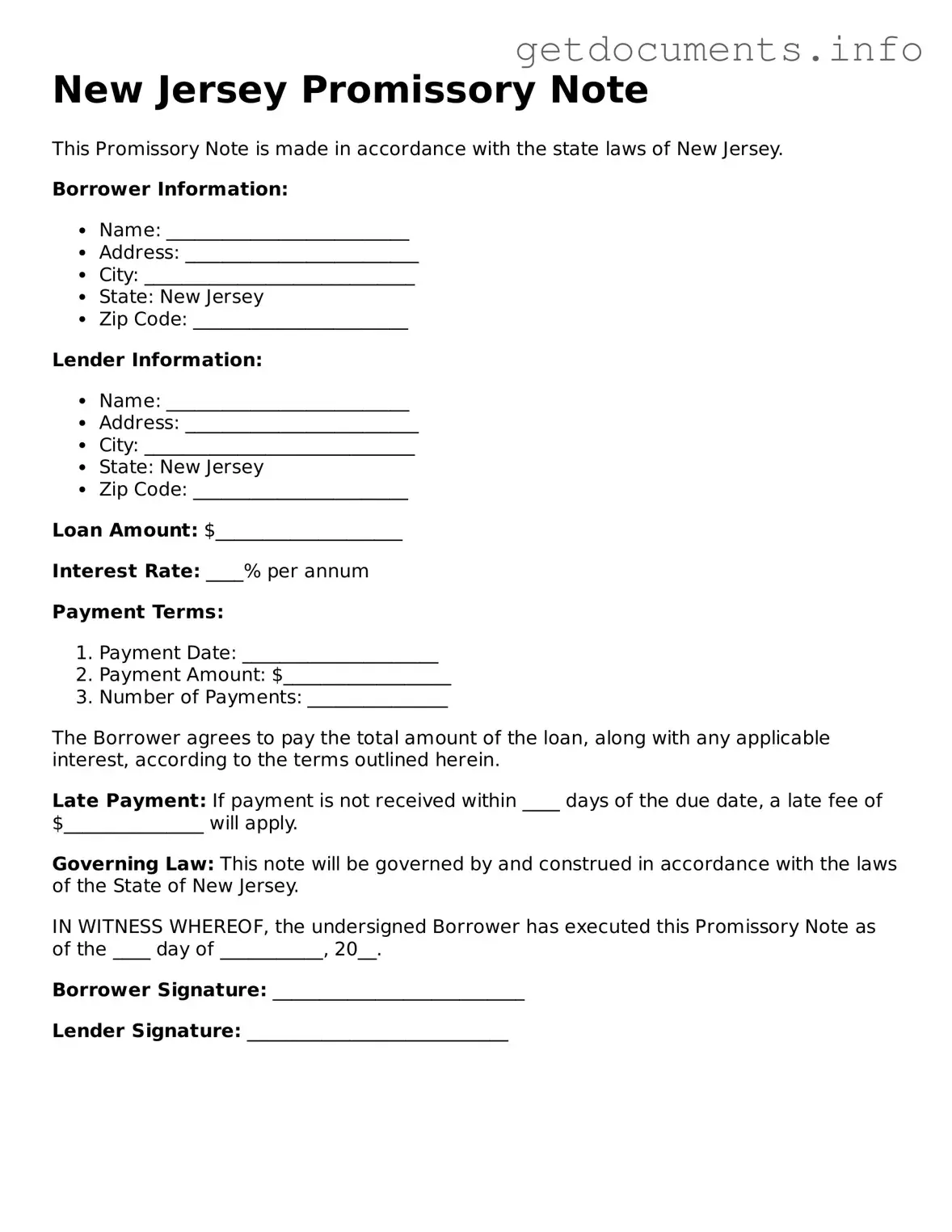Free Promissory Note Template for New Jersey
A New Jersey Promissory Note is a legal document that outlines a borrower's promise to repay a specified amount of money to a lender under agreed-upon terms. This form serves as a crucial tool in personal and business transactions, ensuring clarity and protection for both parties involved. Ready to take the next step? Fill out the form by clicking the button below.
Access Promissory Note Editor

Free Promissory Note Template for New Jersey
Access Promissory Note Editor
Got places to be? Complete the form fast
Fill out Promissory Note online and avoid printing or scanning.
Access Promissory Note Editor
or
⇩ PDF File
